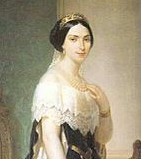
Madama Butterfly is an opera in three acts by Giacomo Puccini, with an Italian libretto by Luigi Illica and Giuseppe Giacosa.

I puritani is an 1835 opera by Vincenzo Bellini. It was originally written in two acts and later changed to three acts on the advice of Gioachino Rossini, with whom the young composer had become friends. The music was set to a libretto by Count Carlo Pepoli, an Italian émigré poet whom Bellini had met at a salon run by the exile Princess Belgiojoso, which became a meeting place for many Italian revolutionaries. The opera is based on Têtes Rondes et Cavaliers, a historical play written by Jacques-François Ancelot and Joseph Xavier Saintine and set in the English Civil War, which some sources state was based on Walter Scott's 1816 novel Old Mortality, while others state that there is no connection.

La clemenza di Tito, K. 621, is an opera seria in two acts composed by Wolfgang Amadeus Mozart to an Italian libretto by Caterino Mazzolà, after Pietro Metastasio. It was started after most of Die Zauberflöte, the last of Mozart's principal operas, had already been written. The work premiered on 6 September 1791 at the Estates Theatre in Prague.

Hans Heiling is a German Romantic opera in 3 acts with prologue by Heinrich Marschner with a libretto by Eduard Devrient, who also sang the title role at the première at the Königliche Hofoper, Berlin, on 24 May 1833. From there, the work went on to become Marschner's most successful opera. The opera brought the composer a considerable reputation, although this did not materially affect his position in Hanover, where he was music director of the Court Theatre. Like Marschner's other great success, Der Vampyr, the plot of Hans Heiling makes great use of supernatural elements. As with several of his operas, Hans Heiling is based on a folk legend.

Creso ('Croesus') is an opera seria in 3 acts with music by Antonio Sacchini, set to an Italian libretto by Gioacchino Pizzi after Book I of the Histories by Herodotos. The opera was first performed on 4 November 1765 at the Teatro San Carlo in Naples. The libretto was a popular one that had been first set by Niccolò Jommelli.

La cambiale di matrimonio is a one-act operatic farsa comica by Gioachino Rossini to a libretto by Gaetano Rossi. The libretto was based on the play by Camillo Federici (1791) and a previous libretto by Giuseppe Checcherini for Carlo Coccia's 1807 opera, Il matrimonio per lettera di cambio. The opera debuted on 3 November 1810 at the Teatro San Moisè in Venice. It had a run of thirteen performances at Teatro San Moisè.

Il re is a novella or opera in one act and three scenes by composer Umberto Giordano to an Italian libretto by Giovacchino Forzano. The opera premiered at La Scala in Milan on 12 January 1929.

Domenico Reina was a Swiss bel canto tenor, notable for creating roles in the operas of Vincenzo Bellini, Gaetano Donizetti, Saverio Mercadante, and other Italian composers.
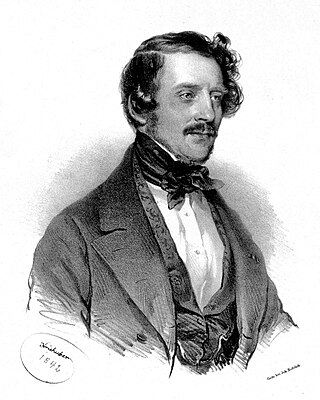
Adelia, o La figlia dell'arciere is an opera in three acts by Gaetano Donizetti. The Italian libretto was written partly by Felice Romani and by Girolamo Maria Marini, a part-time poet who had achieved notability the previous year with Otto Nicolai's Il templario. The opera premiered at the Teatro Apollo, Rome on 11 February 1841.

Medea is an opera in three acts composed by Giovanni Pacini to a libretto by Benedetto Castiglia. It premiered on 28 November 1843 at the Teatro Carolino in Palermo, conducted by the composer with Geltrude Bortolotti in the title role. The libretto is based on the plays Medea by Euripides and Médée by Pierre Corneille.
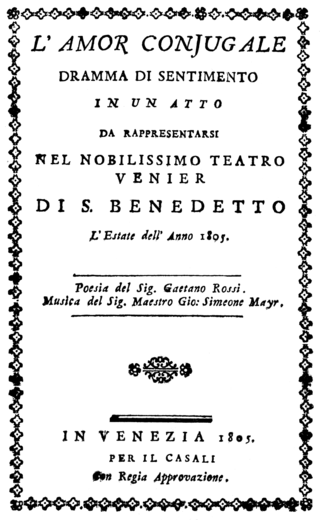
L'amor coniugale is an opera in one act by Simon Mayr set to an Italian libretto by Gaetano Rossi. It premiered at Padua's Teatro Nuovo on 26 July 1805.
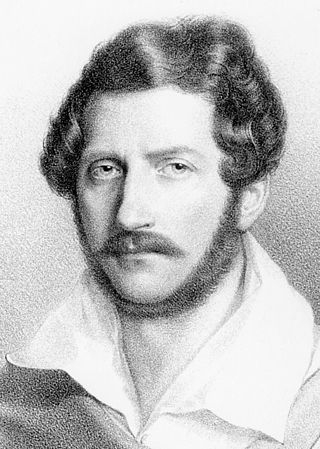
Il furioso all'isola di San Domingo(The Madman on the Island of San Domingo) is a "romantic melodramma" in two acts by the composer Gaetano Donizetti. Jacopo Ferretti, who since 1821 had written five libretti for Donizetti and two for Rossini, had proposed the unusual subject and he was contracted to write the Italian libretto based on a five-act play of the same title by an unknown author in 1820, which "had been given in the same theatre [...] and which Donizetti had immediately loved". However, as has been noted by Charles Osborne, the "ultimate derivation of both play and libretto is an episode in part 1 of Don Quixote by Miguel de Cervantes's published in 1605" which is the story of Cardenio and Lucinda.

Conchita is an opera in four acts and six scenes by composer Riccardo Zandonai. The work uses an Italian language libretto by Maurizio Vaucaire and Carlo Zangarini which is based on Pierre Louÿs's 1898 novel La Femme et le pantin. The work premièred in Milan at the Teatro dal Verme on 14 October 1911 with soprano Tarquinia Tarquini, who later married Zandonai in 1917, in the title role. Her portrayal was lauded by critics and she went on to perform Conchita at the Royal Opera, London (1912), the Cort Theatre in San Francisco (1912), the Philharmonic Auditorium in Hollywood (1912), the Heilig Theatre in Portland (1912), the Metropolitan Opera House in Philadelphia (1912), the Chicago Grand Opera Company (1913), and the Teatro di San Carlo in Naples (1913). The opera was published by G. Ricordi & Co in 1912.

Zemira is an opera seria in three acts by Francesco Bianchi. The libretto was by Gaetano Sertor.

Gloria is a tragic opera in three acts by Francesco Cilea with an Italian libretto by Arturo Colautti. A variation on the Romeo and Juliet story and set in 14th century Siena, the libretto is based on Victorien Sardou's 1874 play La Haine (Hatred). The opera premiered on 15 April 1907 at La Scala conducted by Arturo Toscanini with Solomiya Krushelnytska in the title role. Gloria was a failure at its premiere when it was withdrawn after two performances and fared little better in the 1932 revised version, although there have been two late 20th century revivals. It proved to be Cilea's last staged opera. In the 43 years following the premiere of Gloria he worked on two or three further operas which were never performed and continued to compose chamber and orchestral music.
Paolo (Pablo) Rosich was a Spanish-born opera singer and librettist widely known by the Italianized version of his first name. A skilled comic actor, he performed leading basso buffo roles in many Italian opera houses as well as in Lisbon, London, Madrid and New York. Rosich created the roles of Taddeo in Gioachino Rossini's L'italiana in Algeri and Buralicchio in Rossini's L'equivoco stravagante and also wrote the librettos for two operas by Manuel García: L'amante astuto and La figlia dell' aria.
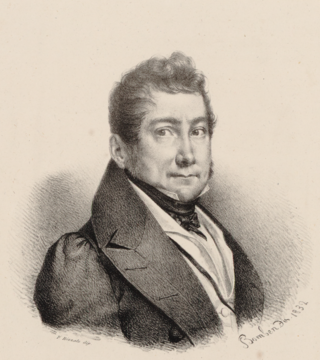
Clotilde is an opera in two acts by Carlo Coccia. The Italian-language libretto was by Gaetano Rossi. It premiered on 8 June 1815 at Teatro San Benedetto, Venice.
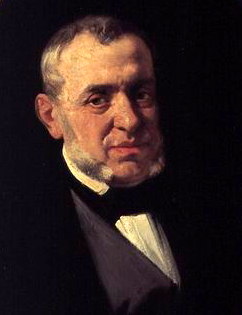
Pelagio is an opera in four acts by Saverio Mercadante. The Italian-language libretto was by Marco D'Arienzo. It premiered on 12 February 1857 at the Teatro San Carlo, Naples, to great success.
Nitocri is an opera in two acts composed by Saverio Mercadante to libretto by Apostolo Zeno adapted by Lodovico Piossasco Feys. The libretto is a fictionalised account of the Egyptian queen Nitocris. The opera premiered at the Teatro Regio in Turin on 26 December 1824.

Fanny Eckerlin (1802–1842) was an Italian mezzo-soprano who also sang contralto roles. During her career she was highly regarded, drawing favorable comparisons to Benedetta Rosmunda Pisaroni, but today she is remembered, if at all, for her association with the early career of Gaetano Donizetti, including creating the title role in his first publicly-performed opera, Enrico di Borgogna.


